Services Required by Law
Whether you are a resident or a business in our community, it’s important to stay informed about the mandatory waste management practices and regulations. This page provides essential information about the required services for both residential and commercial customers, ensuring compliance with local and state laws.
The Short-lived Climate Pollutants Law SB 1383 is the law that applies to residents as well as commercial businesses. The other laws primarily apply to businesses or multifamily dwellings.
Thank you for taking the necessary steps to manage your waste responsibly and efficiently and contributing to a cleaner and more sustainable environment for everyone.
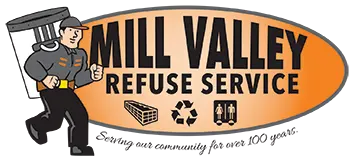

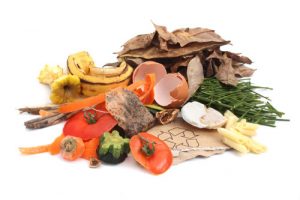 SB 1383: Short Lived Climate Pollutants went into effect January 1, 2022 and is a statewide initiative to reduce emissions of short-lived climate pollutants like methane. This legislation targets organics recycling and edible food recovery as part of California’s effort to fast-track climate progress by cutting landfill methane emissions.
SB 1383: Short Lived Climate Pollutants went into effect January 1, 2022 and is a statewide initiative to reduce emissions of short-lived climate pollutants like methane. This legislation targets organics recycling and edible food recovery as part of California’s effort to fast-track climate progress by cutting landfill methane emissions.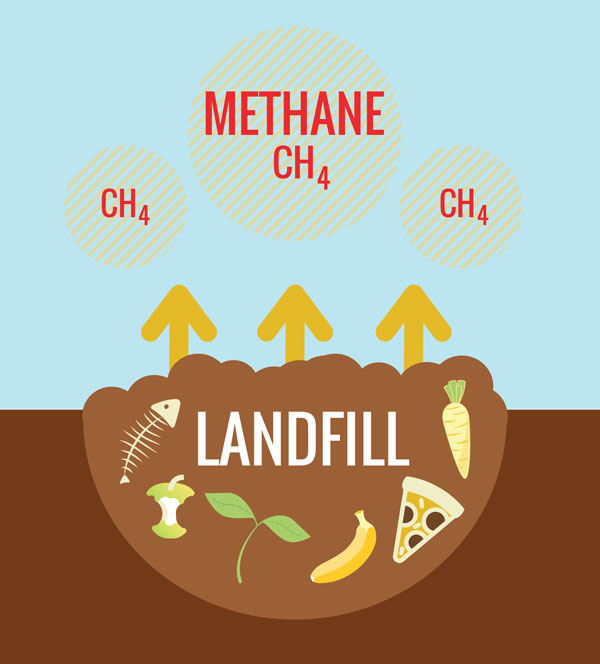
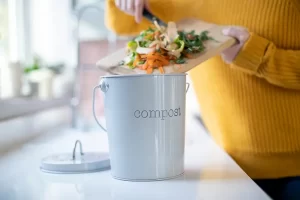 SB 1383 requires all generators of waste (businesses, public entities, and single/multifamily residents) to properly sort their waste, by either placing food scraps, food/beverage soiled paper products, and yard trimmings in the compost cart or self-hauling compostable material to a composting facility or program.
SB 1383 requires all generators of waste (businesses, public entities, and single/multifamily residents) to properly sort their waste, by either placing food scraps, food/beverage soiled paper products, and yard trimmings in the compost cart or self-hauling compostable material to a composting facility or program.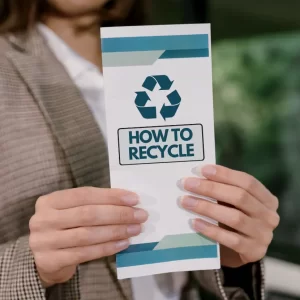
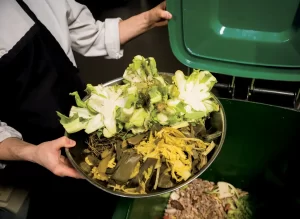 All generators of waste (businesses, public entities, and single/multifamily residents) must properly sort their waste, by either placing food scraps, food/beverage soiled paper products, and yard trimmings in the compost, or self-hauling compostable material to a composting facility or program.
All generators of waste (businesses, public entities, and single/multifamily residents) must properly sort their waste, by either placing food scraps, food/beverage soiled paper products, and yard trimmings in the compost, or self-hauling compostable material to a composting facility or program.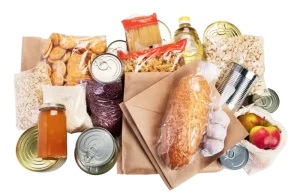 California has a 2025 goal to redirect 20% of edible food currently thrown away to help feed the almost 1 in 4 Californians without enough to eat.
California has a 2025 goal to redirect 20% of edible food currently thrown away to help feed the almost 1 in 4 Californians without enough to eat.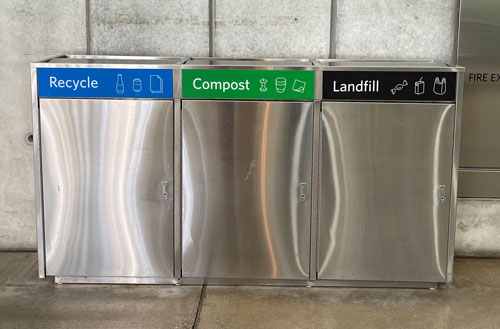
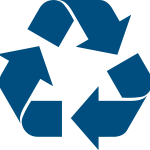 AB 341 is part of California’s effort to tackle climate change by requiring businesses to recycle more. It all started with the Assembly Bill 32 Scoping Plan, aiming to cut greenhouse gas emissions. The goal is to reduce 5 million metric tons of CO2 by increasing recycling in the commercial sector.
AB 341 is part of California’s effort to tackle climate change by requiring businesses to recycle more. It all started with the Assembly Bill 32 Scoping Plan, aiming to cut greenhouse gas emissions. The goal is to reduce 5 million metric tons of CO2 by increasing recycling in the commercial sector.